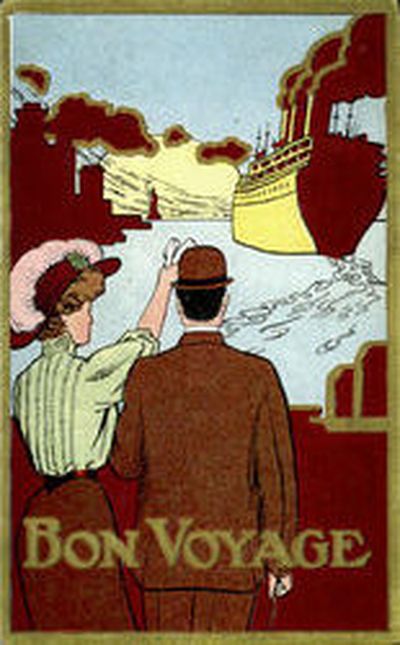The Universal Language

What struck me most, on a quick trip to Vancouver, British Columbia, were the voices I heard as I explored the town. One nationality after another passed me on the street, laughing, talking in a dozen languages.
On my last morning, I sat across the table from an elegantly-dressed business woman and we chatted as we sipped our tea and coffee.
The conversation turned, as it so often seems to do with women, to our children. She has grandchildren and I still have a teenager in the house, but we shared a common bond. We’d both stayed home with our children as babies before making the difficult decision to go back to work.
“It was not long enough, but then it never feels long enough,” she said with a slight shrug, her voice still carrying traces of her native Greece. I agreed. It had been hard to leave home each morning. It still is. Before flying to Vancouver I’d whispered my goodbyes into tousled hair and sleepy ears.
Boarding the SkyTrain back to the airport, I sat down in the vacant seat next to a young man. We gazed out the windows without speaking.
At the next stop, the doors opened and an older couple got on. The woman sat down on the first open seat and the man moved across the car to lean on the rail, their suitcases braced against his legs. The doors closed and the train moved on.
I realized the woman was crying, mopping at her eyes. The more she tried to dry her tears, the more they fell. Soon, the tissue she held was sodden. She would regain her composure, only to have the tears fall again.
The man - her husband - watched her. He was in his 60s, but when he looked down at her he looked like a lost little boy, not sure what to do or say.
The woman was embarrassed and people were trying not to stare. Speaking German, she asked her husband if he had a handkerchief. He patted his pockets and shook his head. The little-boy look again.
I wondered if they’d come to Vancouver to visit children or grandchildren and on departure the miles were looming large.
Suddenly, the silent man beside me zipped open his backpack and reached in pulling out a small package of tissues. He stood up, careful to move with the swaying car, and walked over to offer it to the woman. She looked up surprised but, smiling gratefully, took a tissue.
The older man’s eyes followed the younger man back to his seat. He looked grateful, as well.
“You were kind to do that,” I said, breaking our silence, and he looked down at his shoes.
“Yes, well…” he said in the honeyed tones of a French accent. “It is hard.”
Then the train pulled into the airport station, the doors opened and we all went our separate ways.
I navigated the long lines at security and customs and the boarding gate. I took off my shoes, declared my goods and offered up my passport. But as I went through the motions, the woman from the hotel, the couple and the student were on my mind
For all I know, the young man beside me had just said his own goodbyes to someone he loved. In a way, the woman might have been crying his tears, too.
Goodbye is difficult in any language. But love, like a tear, or a smile or a gesture of compassion, is universal. We each speak it in our own way.
Cheryl-Anne Millsap is a freelance columnist for The Spokesman-Review. Her essays can be heard on Spokane Public Radio and on public radio stations across the country. She is the author of “Home Planet: A Life in Four Seasons” and can be reached at catmillsap@gmail.com
* This story was originally published as a post from the marketing blog "Home Planet." Read all stories from this blog